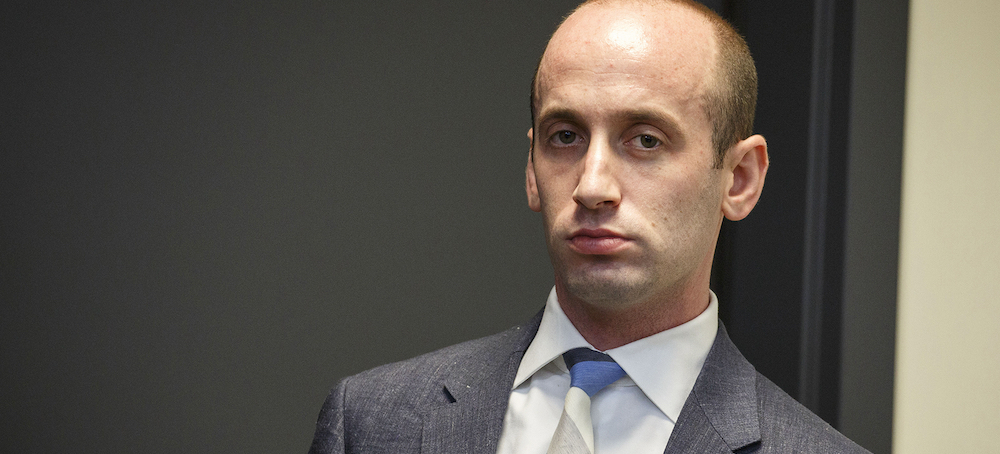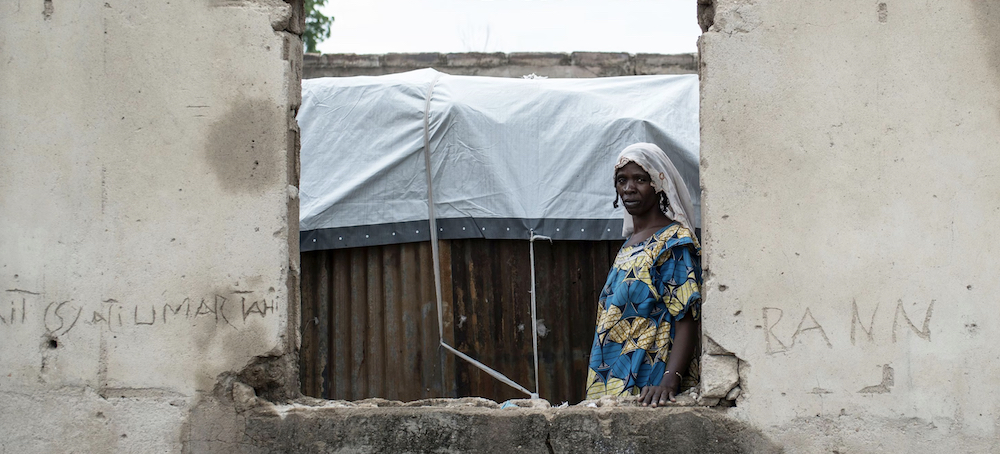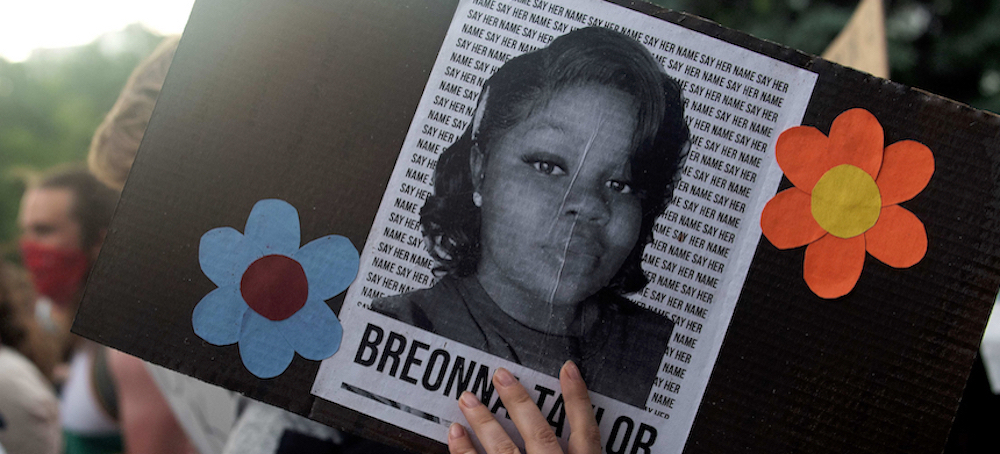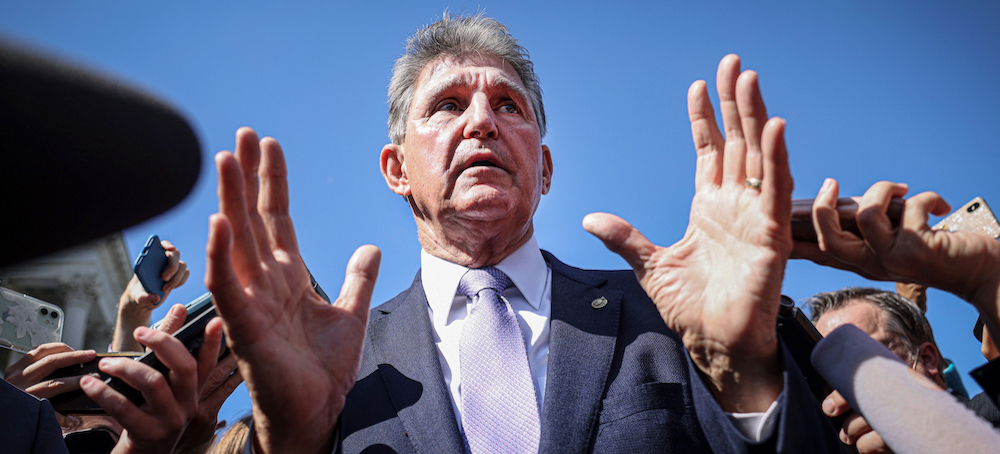RSN: Charles Pierce | The Logic Behind Dobbs Was Always Crap, and Michigan Is a Case in Point
If You Are Donating We Need to Thank You
Donations and funding have become a real struggle. But many great supporters are still helping. In fact for the second straight month the number of people donating was in fact up. The dollar figures were lower so overall funding is still a challenge. That said if the number of people chipping-in continues to increase good things are bound to happen.
If you are an active donor we thank you and everyone that depends on RSN is in your debt.
Onward!
Marc Ash
Founder, Reader Supported News
If you would prefer to send a check:
Reader Supported News
PO Box 2043 / Citrus Heights, CA 95611
Follow us on facebook and twitter!
Live on the homepage now!
Reader Supported News
"Leave it to the states," they said, disingenuously.
The Michigan Supreme Court’s emergency ruling overrides last week’s party-line tie vote by the Board of State Canvassers, which blocked the certification of the proposed constitutional amendment. The two Republicans on that panel sided with conservative groups that argued spacing and formatting errors on the text canvassers presented to voters rendered the entire effort invalid.
This is the kind of penny-ante ratfcking in which state GOP organizations specialize—and in which they glory, truth be told. Unfortunately for them, however, Chief Justice Bridget Mary McCormack can see a church by daylight.
Chief Justice Bridget McCormack blasted those officials for that decision, writing in her ruling Thursday: “Seven hundred fifty three thousand and seven hundred fifty nine Michiganders signed this proposal—more than have ever signed any proposal in Michigan’s history. The challengers have not produced a single signer who claims to have been confused by the limited-spacing sections in the full text portion of the proposal. Yet two members of the Board of State Canvassers would prevent the people of Michigan from voting on the proposal.”
McCormack added that using spacing errors to justify keeping the measure off the ballot is “a game of gotcha gone very bad” and commented: “What a sad marker of the times.
(Fun fact: Chief Justice McCormack is the sister of actress Mary McCormack, The West Wing’s Kate Harper, who was the Bartlet White House’s resident spook, whose romance with the insufferable Will Bailey was the most implausible thing about that show apart from all the imaginary reasonable Republicans who were forever wandering about.)
The two dissenting Michigan Supremes reached new heights of piddling and the picking of the nits.
Two justices dissented, arguing that the court should have held oral arguments on the case before issuing a ruling and that the claims raised by the challengers are legitimate. “It may have the right words in the right order,” Justice David Viviano said about the abortion rights petition, “but the lack of critical word spaces renders the remaining text much more difficult to read and comprehend.”
Only a true sap (or possibly someone from the West Wing’s writer’s room) ever believed that American conservatives actually believed that abortion should be “left to the states.” They wanted to eliminate federal protections of that right so that state protections could be more easily demolished. Witness Michigan, where the state legislature immediately tried to reactivate an anti-choice law from 1931. (Wisconsin had them beat, though; their legislature tried to reimpose an anti-choice statute passed during the presidency of Zachary Taylor.) They are—as we keep reminding folks here in the shebeen—playing for the whole bag of marbles, and they still take their marching orders from Josef Stalin’s command to the Red Army when the Germans invaded: Ni shagu nazad.
Not one step backwards.
 A Ukrainian soldier guards his position. (photo: Mstyslav Chernov/AP)
A Ukrainian soldier guards his position. (photo: Mstyslav Chernov/AP)
ALSO SEE: Russia Announces Troop Pullback
From Ukraine’s Kharkiv Area
As the advancing Ukrainian troops regained lost territory with shocking speed, liberating the town of Balakliya and raising their blue-and-yellow flag over the city of Izyum, jubilant Ukrainians and officials in Kyiv and Western capitals indulged in a daring hope: maybe the grinding, stalemated war was swinging their way.
“Everything is going to be Ukrainian again,” cried Natalia Khubezhova, 48, who was one of dozens of festive residents of Chuhuiv out sweeping up glass and repairing doorways on the village hospital, which was struck by a rocket Friday. Tears ran from her eyes as she hailed the progress of Ukrainian soldiers, including her husband and son.
“We are all ready to go into battle!” she said, brandishing her broom.
The Russian Defense Ministry on Saturday confirmed that it had pulled forces out of Balakliya and Izyum, after a decision to “regroup” and transfer them toward the regional capital of Donetsk in the south “in order to achieve the goals of the special military operation.”
The stunning rout of Russian forces by Ukraine’s flash counteroffensive in the Kharkiv region does not, on its own, signal a decisive shift in the war to Ukraine’s advantage.
Russia still occupies extensive Ukrainian territory, including the cities of Mariupol, Melitopol and Kherson, and Russian troops still control Putin’s coveted “land bridge” to Crimea, which Russia annexed illegally in 2014. And on Saturday afternoon, Russia immediately began to pummel the reclaimed territories with a fierce barrage of high-powered missiles.
But the Ukrainian campaign has cut enemy supply lines, revealed disarray in the Russians’ ranks, electrified Ukrainians, forced occupying authorities to flee and infuriated Kremlin boosters.
“A major defeat,” Igor Girkin, a hard-line former commander of separatists in Ukraine, lamented in a pro-Russian military Telegram channel.
Ukrainian Defense Minister Oleksii Reznikov said his country was still far from claiming any triumph. “A sign of victory for me will be boarding a plane in Kharkiv and landing in Mariupol,” Reznikov said in a speech Saturday at a conference in Kyiv.
German Foreign Minister Annalena Baerbock, speaking at the same conference on a surprise visit to the capital, cheered Ukraine’s gains. “Troops are moving forward; they are not only gaining back territory but liberating people,” Baerbock said. “I think it’s really a moment of hope, even though maybe it’s a small moment of hope. This is what we need.”
In Washington, a senior Defense Department official called the advances “highly encouraging.”
At the very least, Ukraine’s surprise thrust into the northeast region of Kharkiv, after launching a separate counteroffensive that drew thousands of Russian troops to the southern Kherson area last week, has allowed the country to seize momentum in what had become a grinding artillery standoff.
Only two months ago, Ukraine was forced to withdraw from the city of Lysychansk, ceding the entirety of the region of Luhansk to Russian control. Since then, however, Russian artillery has made only incremental advances. But on Saturday evening, the Luhansk governor, Serhiy Haidai, tweeted that Ukrainian troops had reached the outskirts of Lysychansk.
Now, Ukrainian troops in the northeast have blitzed through dozens of towns and villages within days, at times advancing 30 to 40 miles in a single day, a pace not achieved by Russia since the earliest days of the invasion.
It has the potential, at least, to change the course of the war, military experts said.
“This is a significant event,” said Rob Lee, a military analyst at the Foreign Policy Research Institute. “It doesn’t mean Russia will be forced out of Ukraine anytime soon. But they keep not learning lessons right, keep not doing basic things right.”
“The overall situation now favors Ukraine, especially in the medium term,” Lee said.
Military analysts said that Ukraine had retaken more than 965 square miles of territory in the Kharkiv region and that Ukrainian troops appeared close to controlling Kupyansk, an important rail hub.
Russian military analyst Mikhail Khodarenok told Russian state television on Friday that Kupyansk was a crucial logistical base for Russia, situated at an intersection of rail lines and highways. “It has exceptionally high importance for the supply of all our troops in that region,” Khodarenok said.
Officials and “volunteers” working for the Russian-installed occupation administration in the Kharkiv region were retreating to the Russian border and setting up temporary camps amid the Ukrainian breakthrough, and pro-Russian officials were urging residents to flee.
The leader of Russia’s governing United Russia party, which runs quasi-governmental bodies in occupied Ukrainian territories, announced on Telegram that it moved its “volunteer detachment from Balakliya, Kupyansk, Izyum and Volchansk to the border with the Belgorod region.”
“Refugees arrive here, massively leaving the Kharkiv region due to increased shelling launched by Ukrainian nationalists,” the party leader, Andrei Turchak, wrote on his Telegram blog. “People are leaving with their families; there are many children. There are now more than 400 vehicles at the border.”
The governor of Russia’s Belgorod region, Vyacheslav Gladkov, confirmed that border checkpoints were trying to cope with the hectic influx of people fleeing the area of the Ukrainian counteroffensive.
“There are long queues of civilian cars with refugees from Ukraine,” Gladkov wrote on Telegram. “Mobile food stations have already been deployed and food and water delivery to the Kharkiv side has been organized.”
Just days ago, Turchak had suggested that the staged referendums Moscow had planned to carry out as a pretext for annexing occupied territories could occur on Nov. 4 to coincide with Russia’s Unity Day.
Instead, Russian units have fled in disorder, giving Ukrainian soldiers a chance to hoist blue-and-yellow flags over freshly liberated town squares and take selfies with the large number of ammunition crates and military vehicles the Russians left behind.
The advances have come at a cost, according to Ukrainian commanders.
Anatoli Pryhrusha, who led a unit in the fight to take back the town of Balakliya, said in an interview that the fighting had been fierce and bloody. “It’s good the Russians ran away, but we paid with a lot of lives,” Pryhrusha said.
The local victories could add up to a broader strategic shift if Ukrainians continue to press their sudden advantage, analysts said.
Ukrainian troops were pushing southeast along the M03 highway, which would eventually allow them to reconnect Kharkiv, Ukraine’s second-largest city, with the adjacent Donbas region, joining two key front-line theaters.
On Saturday, before the Russian retreat, the mayor of Izyum, an occupied city just 44 miles north of the Donbas city of Kramatorsk, said in an interview that Ukrainian troops had entered his city and were battling Russian troops street by street with small arms and automatic weapons.
“I’m speechless,” the mayor, Valeriy Marchenko, said of the Ukrainians’ rapid and unexpected progress in the region. “No one was expecting this to be so fast.”
The pullout from Izyum, which Russia had used as a resupply hub for its offensive through the eastern Donbas region, marked one of the biggest setbacks for Russia since its troops rolled into Ukraine in February.
With Russian troops out of Izyum, Russia’s ability to fulfill its objective of seizing the entirety of the Donbas region — the only publicly declared goal of Putin’s proclaimed “special military operation” — is now in doubt, said Kirill Mikhailov, a Kyiv-based analyst with the Conflict Intelligence Team, a Russian military research group.
Izyum is an important command and supply hub for Russia’s northern front and Russia’s only major bridgehead on the right bank of the Donets River, he said, and losing it would eliminate an entire front — the northern front — in its efforts to conquer Donetsk.
“The bottom line is that it really improves Ukrainian chances of retaining Donetsk,” he said.
Russia’s confirmation of the Ukrainian advances sparked furious rebukes by its supporters on what normally would be a day of jubilant celebrations of City Day, an annual holiday, in Moscow.
“Tonight, the capital of our Motherland — the city of Moscow — will salute the surrender of Balakliya, Izyum and half of Kupyansk to the enemy with 25,000 high-altitude fireworks,” Girkin wrote on Telegram. Indeed, throughout the afternoon, high-powered explosions were being felt as Russia pounded the Kharkiv region with rockets.
Girkin complained bitterly about extravagant celebrations for City Day in Moscow, where Putin visited a new martial arts center and presided over the openings of a section of new highway and a giant, 460-foot tall Ferris wheel called the Moscow Sun.
“There is nothing like that in Europe,” Putin said, according to the Tass news agency. “It is very important for people to have a chance to chill out with their family and friends.”
Girkin has long warned that Russia cannot win the war without a massive military mobilization, a move the Kremlin has avoided because it would be deeply unpopular to require conscriptions in the urban centers of Moscow and St. Petersburg.
“For Russia, things are only going to get worse,” said Lee, the military analyst. “For Russia, this is going to cause a morale problem. There aren’t any good reasons for Russia to believe it can achieve any more in Ukraine than it already has.”
 Stephen Miller, former senior advisor to Trump. (photo: SPLC)
Stephen Miller, former senior advisor to Trump. (photo: SPLC)
Stephen Miller and Brian Jack were summoned as authorities investigate funds related to the Save America Pac, currently sitting at $100m
Stephen Miller, once one of the former US president’s most senior aides, and Brian Jack, his former director of political affairs at the White House, were part of a large group of Trump’s officials and allies who were subpoenaed by the grand jury this week, the New York Times reported.
The current investigation is examining funds related to the Save America political action committee (Pac) and an alleged plan that would entail sending fake electors to states that had contested results in the 2020 elections.
The Pac, which was created by Trump in November 2022 shortly after the election, is funded entirely by Republicans, and currently sitting on more than $100m in funds – up from $31m in 2020.
Miller, who attracted notoriety during Trump’s administration for his alleged links to white supremacists and his staunch anti-immigrant stances, participated in a lengthy testimony earlier this year to the House select committee about Trump’s role in fanning the flames of the January 6 attack on the Capitol.
Prior to that, in December, Jack also faced a subpoena for his role in organizing a January 6 rally that led to the insurrection.
Others on the list of the subpoenas issued this week include officials who were involved with the electoral scheme in various degrees: from junior aides, to pro-Trump lawyers assisting in planning the scheme, as well as Republican lawmakers who are just Trump allies.
While the subpoena doesn’t put the individuals directly under investigation, it is an action that the Department of Justice can take against an individual in order to try to garner further information in a case, according to the Times.
This week’s subpoena is only the latest in a long string of allegations against, and investigation of the former president. In the most recent episode, a raid in his Mar-a-Lago Florida estate revealed he was in possession of documents he took from the White House during his departure in 2021 – documents that even senior Biden aides did not have the access to view.
In response, Trump last week chided the FBI and Department of Justice, accusing them of being “vicious monsters” under the control of the media and “radical-left scoundrels”.
ADDED FROM THE LINKED ARTICLE:
Mr. Jack, who remains an adviser to Mr. Trump as well as to Representative Kevin McCarthy of California, the House Republican leader, and several other House Republicans, declined to comment.
 A woman looks through a window in the internally displaced persons’ camp in Raan, northeastern Nigeria, on July 29, 2017, months after a deadly airstrike. (photo: Stefan Heunis/AFP/Getty Images)
A woman looks through a window in the internally displaced persons’ camp in Raan, northeastern Nigeria, on July 29, 2017, months after a deadly airstrike. (photo: Stefan Heunis/AFP/Getty Images)
U.S. involvement in the 2017 attack, which killed more than 160 civilians at a displaced persons’ camp in Nigeria, was first reported by The Intercept.
The group, known as the Protection of Civilians in Conflict Caucus, asked Austin to turn over classified documents and answer questions about the U.S. military’s involvement, which was first revealed by The Intercept in July.
While the Nigerian air force expressed regret for carrying out the 2017 strike, which also seriously wounded more than 120 people, the attack was referred to as an instance of “U.S.-Nigerian operations” in a formerly secret U.S. military document. Just days after the attack, U.S. Africa Command secretly commissioned Brig. Gen. Frank J. Stokes to undertake an “investigation to determine the facts and circumstances of a kinetic air strike (‘strike’) conducted by Nigerian military forces in the vicinity of Rann, Nigeria,” according to the document, which The Intercept obtained under the Freedom of Information Act. Stokes’s findings were never made public.
The document, reporting by Nigerian journalists, and interviews with experts suggest that the U.S. may have launched this rare internal investigation because it secretly provided intelligence or other support to the Nigerian armed forces who carried out the deadly strike. The U.S. inquiry was ordered by the then-top American general overseeing troops in Africa; Stokes was specifically told to avoid questions of wrongdoing or recommendations for disciplinary action, according to the document.
The group that sent the letter was formed late last month, following the Pentagon’s release of its Civilian Harm Mitigation and Response Action Plan, which calls for broad changes to military doctrine to reduce risks to noncombatants. Reps. Sara Jacobs, D-Calif.; Jason Crow, D-Colo.; Ro Khanna, D-Calif.; Andy Kim, D-N.J.; and Tom Malinowski, D-N.J., launched the Protection of Civilians in Conflict Caucus to provide oversight of the Pentagon and advance policies that prevent and respond to civilian casualties from military operations conducted by the United States and its allies.
“Given the previously unreported nature of the U.S. military’s involvement in this strike and subsequent investigation, and your recent commitments to transparently responding to civilian harm, we request that the Department make available the investigation and all accompanying documentation to Members of the House Armed Services Committee,” reads the group’s letter to Austin, asking for the information to be furnished within 90 days.
The letter raises questions about the nature of U.S. involvement in the 2017 attack, including about the circumstances that led to targeting of the displaced persons’ camp; whether corrective action was taken by the Nigerian or U.S. militaries; if AFRICOM or the State Department had knowledge of the U.S. role in the attack; and whether the United States has continued to assist the Nigerian military in airstrikes or ground operations.
“Congress has a critical role to play in ensuring that the United States prevents, mitigates, and responds to civilian harm with transparency and accountability — and that includes harm committed when working by, with and through partners,” said Annie Shiel, the senior adviser for U.S. policy and advocacy at the Center for Civilians in Conflict. “Given that AFRICOM has apparently investigated the strike already, I hope the Defense Department will respond transparently to this inquiry — and to the demands of civil society groups — by publicly releasing the investigation and acknowledging any U.S. role in the strike and its impact.”
In July, AFRICOM spokesperson Kelly Cahalan did not answer The Intercept’s questions about the results of Stokes’s investigation; she also did not respond to more recent questions about whether the command would turn over information on the strike to members of Congress.
“The United States has a duty to provide clear information on the extent of support provided to the Nigerian military for the Rann airstrike and the consequences of this support,” said Anietie Ewang, Human Rights Watch’s Nigeria researcher. “If their collaboration with the Nigerian authorities in any way contributed to the killing of civilians during the strike, they should acknowledge this and share in the responsibility to ensure accountability and redress for victims, which the Nigerian authorities have failed to do.”
Secret U.S. involvement in other nations’ errant airstrikes is an underreported form of civilian harm. Earlier this year, The Intercept revealed how U.S. targeting assessments carried out for the Dutch military led to a 2015 airstrike on an ISIS bomb factory in Hawija, Iraq, that touched off secondary explosions, killing at least 85 civilians. No Americans were held accountable for the civilian deaths in the Hawija strike, in keeping with a litany of attacks from Somalia to Libya and from Syria to Yemen that the Pentagon has failed to investigate or reinvestigate despite civilian casualty allegations. The U.S. has conducted more than 91,000 airstrikes across seven major conflict zones and killed as many as 48,308 civilians, according to a 2021 analysis by Airwars, a U.K.-based airstrike monitoring group.
The Civilian Harm Mitigation and Response Action Plan — written at the direction of Austin in response to reporting by the New York Times and others — provides a blueprint for improving how the Pentagon addresses civilian casualties. The plan requires military personnel to consider potential harm to civilians in any airstrike, ground raid, or other type of combat. It also signals a more nuanced understanding of how civilian harm extends beyond deaths and injuries to include damage to infrastructure and essential services on which civilians depend, but experts say the plan is light on the question of accountability. That, potentially, is where Congress can play a key role.
“The Protection of Civilians in Conflict Caucus can make a mark with how they proceed on this case by ensuring they leave no stone unturned,” said Ewang. “They should go beyond uncovering the extent of U.S. involvement in the airstrike to asking critical questions about civilian casualty assessments and push for accountability and redress if there is any indication of U.S. responsibility.”
 Ginni Thomas, wife of Supreme Court Justice Clarence Thomas. (photo: Susan Walsh/AP)
Ginni Thomas, wife of Supreme Court Justice Clarence Thomas. (photo: Susan Walsh/AP)
Slightly more than half of the parties that filed amicus briefs pushing for the end of the 1973 landmark case that legalized abortion in the United States has political connections to her, The Guardian reported on Friday.
Thirty-eight out of 74 — or 51% — of amicus briefs produced in support of a decision to overturn Roe v. Wade were produced by right-wing, religious, and conservative groups and individuals with ties to Justice Thomas, the analysis found.
"The Thomases are normalizing the prospect of too close an association between the Supreme Court and those who litigate before it," Melissa Murray, a law professor at NYU, told The Guardian.
The analysis, which was conducted by a nonpartisan public interest group, shows a pattern of various overlapping connections between the people who advocated for overturning Roe v. Wade and Justice Thomas.
Thomas, for example, serves as the board director for the lobbying arm of the Council for National Policy, a conservative networking organization that supports "traditional western values," per one of its webpages.
Several people who filed an amicus brief in support of the overturn are affiliated with CNP, the analysis found, including Tony Perkins, who serves as the president of the Family Research Council — a group that lobbies in part against abortion — and former President Donald Trump's impeachment lawyer Jay Sekulow.
The results of the analysis come months after the Supreme Court overturned Roe w. Wade.
Fears about the possibility of the Supreme Court doing so have cropped up since May after Politico published a leaked draft opinion that foreshadowed the overturn. In the draft opinion, Associate Justice Samuel Alito characterized abortion as "egregiously wrong from the start." At the time Politico published the article, Justice Thomas stood with Justice Alito, along with Neil Gorsuch, Brett Kavanaugh, and Amy Coney Barrett, forming a majority preliminary vote.
And in June, the Supreme Court did overturn Roe v. Wade, with Justice Thomas voting alongside the conservative block to do so.
By overturning Roe, the Supreme Court has left the legality of abortion in the hands of individual states.
 A demonstrator holds a sign with the image of Breonna Taylor. (photo: Jason Connolly/AFP/Getty Images)
A demonstrator holds a sign with the image of Breonna Taylor. (photo: Jason Connolly/AFP/Getty Images)
Information from surveillance of Breonna Taylor’s apartment raises questions about why Louisville police conducted the raid that killed her.
But the officer who noticed Walker’s presence allegedly never shared that information with the team that carried out the raid.
Officers’ interaction with Walker that night ultimately led to Taylor’s death, and Louisville police have long maintained that his presence was unexpected. When police executed the deadly raid on Taylor’s apartment, on March 13, 2020, Walker, who had a concealed carry license, thought an intruder had broken in and fired one shot, which hit an officer in the leg. Police then responded with a barrage of more than 30 bullets, killing Taylor.
The Louisville Metro Police Department’s awareness of Walker’s presence at the apartment, as well as his association with Taylor, also raises questions about why police executed the raid in the first place. Police had obtained the warrant by arguing that Taylor had an ongoing relationship with Jamarcus Glover, the central target of a drug investigation.
The stunning revelations were buried in an addendum to a plea agreement with former detective Kelly Hanna Goodlett, one of four former Louisville Metro Police Department officers federally charged last month in relation to Taylor’s death.
According to the plea agreement, former Louisville police sergeant Kyle Meany, who’s also facing federal charges, witnessed Walker’s car at the apartment while conducting surveillance on March 11. Meany was, at the time, the head of the unit responsible for the investigation that led police to Taylor’s home. The unit has since been disbanded.
Goodlett alleges in the new filing that Meany never shared Walker’s presence at Taylor’s apartment with the team and that the information could have drastically changed how police conducted the raid. The potential for police to encounter a licensed gun owner, for example, would have increased the risk associated with the warrant, and, as a result, required the use of a SWAT team, which handles more dangerous operations.
“Goodlett would have ‘thrown a fit’ if she had known that information existed and that it was neither included in the affidavit nor provided to officers executing the warrant,” according to the filing.
The unit investigating Taylor’s apartment also had other intelligence suggesting Walker would be there—and that he may have a gun, as VICE News’ previously reported. On the same day that police observed Walker’s car outside of Taylor’s apartment, Det. Wesley Barton requested a “workup,” or intelligence, on Walker, which revealed that he and Taylor knew each other well, and that he had a concealed carry license.
But that information, according to the recent filing, was also not shared with the officers executing the raid. Meany also allegedly saw the workup on Walker. It’s unclear if the document was shared with anyone else besides Meany and Barton.
Since Taylor’s death, the Louisville Metro Police Department and the Kentucky Attorney General’s office have conducted multiple investigations into what transpired that night. During interviews, neither Meany nor Barton shared information about the intelligence on Walker or knowledge of his presence at Taylor’s apartment.
Meany, Goodlett, and former Det. Joshua Jaynes were indicted last month on federal conspiracy charges for allegedly falsifying information included in the affidavit used to obtain a search warrant. Goodlett pleaded guilty, and is cooperating with investigators. Meany and Jaynes both pleaded not guilty and are scheduled to go to trial on Oct, 11. Former Louisville detective Brett Hankison, who fired ten shots during the raid, was charged with a federal deprivation of Taylor’s civil rights. His trial is set for Oct. 13. Barton is not currently facing any charges.
The Department of Justice is also expected to release its letter on the civil rights investigation into Louisville Metro Police Department in the coming weeks, which is separate from the charges filed against the four current and former officers.
 Senator Joe Manchin of West Virginia. (photo: Kevin Dietsch/Getty Images)
Senator Joe Manchin of West Virginia. (photo: Kevin Dietsch/Getty Images)
“For so long… these industries have been placed in BIPOC communities that are too often targeted by these projects. It’s time for them to stop. We can no longer be made sacrifices for oil and gas,” said Roishetta Ozane, an organizer for Healthy Gulf whose Southwest Louisiana home is surrounded by refineries and petrochemical plants. She challenged lawmakers to “breathe the air we breathe. Drink the water we drink. And feel everything we feel in a community where everywhere we look we see industry.”
In negotiations to pass the Inflation Reduction Act, Majority Leader Chuck Schumer promised coal millionaire and West Virginia Senator Joe Manchin III he would support the side deal, which would undermine foundational environmental protections under NEPA that are critical for communities to challenge projects that harm them.
The changes are “something the Republican Party has wanted for the last five to seven years,” Manchin told West Virginia Metro News. The Schumer-Manchin side deal faces stiff opposition from House Democrats, as well as Sen. Bernie Sanders, but Senate Democratic leadership say they will attach it to an upcoming “must pass” government funding bill.
Follow us on facebook and twitter!
PO Box 2043 / Citrus Heights, CA 95611


Comments
Post a Comment